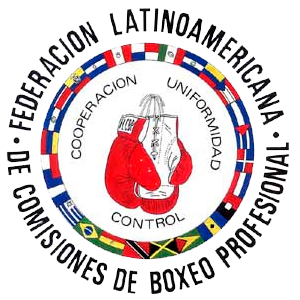Is this an invasion of personal liberty?
by
Dr Raymond Monsell
M.D. Cardiff Wales U.K.
Medical officer to the Welsh Amateur Boxing Association
Member of Association of Ringside Physicians
The detection of substances banned in sport has until now relied on urine testing. Human growth hormone, erythropoetin and autologous/non-autologous blood doping necessitate the invasive procedure of blood sampling for their detection (Birkeland and Hemmersbach). This raises the ethical dilemma of conflicting rights: those of the individual, versus those of a sports governing body. An ethical dilemma may be defined as either a difficult problem seemingly incapable of a satisfactory solution, or a situation involving choices between equally unsatisfactory alternatives (Morris). The key issues to be addressed in this dilemma are the rights of a governing body to regulate a given sport, the rights of the individual as enshrined in the human rights act 1998, (Human Rights act 1998) and the validity of that individual’s consent to invasive testing.
Governing bodies have a duty to their members to uphold the rules and regulations, which ensure fairness in competition. This is contained within the Olympic charter, which encompasses the ideal of “Fair play”(British Olympic association 2000) This can only be achieved by eliminating from competition athletes using banned substances. They may therefore adopt a utilitarian stance, declaring the need for invasive testing benefits the majority, potentially at the expense of the rights of the individual (Sulmasy). However the converse argument regarding the rights of the individual may also be relevant.
A programme of randomised venous blood sampling may be defended on the grounds that it protects the rights of the many athletes who do not use illegal substances, and that doping in sports may be considered a problem of public health (Laure). Any programme of drug testing in athletics, and particularly venous blood sampling may however be in violation of the human rights act 1998, possibly invading the personal liberty of both innocent and guilty athletes alike. Article 8 of this act grants the individual the right to privacy, and as such it may be argued that the use of ergogenic aids that are banned is a private matter. The whole testing process may be challenged as an infringement of personal liberty under this act, as it may be seen to violate article 8, privacy, article 6, fair trial and the inferences drawn from refusal to undergo testing, and finally article 14, where discrimination may be perceived regarding selection for testing. The requirement for blood testing as a screen is an assault, which may also infringe article 3 of the same act.
The governing bodies may argue that although section 8 covers the individuals rights, subsection 8(2) would allow a programme of invasive testing, as this is a means of protecting health and morals, and the rights of freedoms of others, this being the previously mentioned utilitarian approach. A more complex issue may arise if an athlete invokes a religious objection to blood testing, as this would violate article 9, the right to thought, conscience and freedom. Jehovah’s witnesses are obedient to the scriptural directive to “Abstain and keep from blood” (Ridley). Although this is usually interpreted as a refusal to have transfusions or blood products, it may lend itself towards a defence for refusing to donate a blood test.
The area of consent is fraught with potential problems. Consent must be obtained prior to an invasive procedure such as venesection, as absence will constitute an assault. There are essentially two types of consent that apply to blood testing. Legal consent is merely gaining the permission of the athlete to draw a sample of blood. The athlete needs not know why it is been taken, and United Kingdom law will uphold a positive test, if permission has been given to take it.
Medical ethics would require an athlete to be fully informed as to the reasons for the test, the manner in which it will be carried out, the consequences of a positive test, and the potential for false positive results. Information regarding rights to appeal any decision would ideally be required. An individual, who takes part in any sporting activity under the jurisdiction of a given governing body, will by definition be party to the rules and regulations of that body. If the sport requires blood testing, then it may be assumed that participation itself is tacit agreement to co-operate in any testing programme, and as such the athlete consents. For example Professional boxing requires annual testing for Human Immunodeficiency Virus (British Boxing Board of Control rule-book), which necessitates a venous blood sample. First time applicants for a professional boxing licence are informed of this, and thereafter it is assumed that their continuing to box indicates an ongoing acceptance of this requirement. The International Biathlon Union also undertook a compulsory three-year venous blood-sampling programme to investigate haematocrit levels. (Manfredini et al) Thus there is no precedent to be set regarding venous sampling per se in athletes, However it may rightfully be argued that presumed consent by way of participation is not fully informed. It is here that the doctors and doping control officers have a moral and ethical duty to provide all the information previously mentioned.
In summary there appear to be a number of answers to the vexed question of whether venous sampling infringes personal liberty. A governing body has a duty of care towards, and must protect the rights of the individual.
However they also have a duty to protect the many, and therefore a utilitarian defence of venous blood sampling would appear appropriate. An athlete may invoke the human rights act 1998 to protect his freedom of privacy, choice, and personal expression, but governing bodies may also utilize section 8(2) of the same act to challenge the wishes of the individual, in order to protect the Health, morals, rights and freedom of others.
If we are to accept that testing is therefore not an invasion of civil liberty, it would seem proper to conduct it in the context of fully informed consent. Although presumed consent and legal consent are valid in law, they go against the previously mentioned Olympic ideal of fair play, which is essentially what blood testing seeks to preserve.
References
Birkeland, K.L., Hemmersbach, P., (1999), The future of doping control in athletes. Issues related to blood sampling. Sports Medicine. 28(1): 25-33
British Boxing Board of Control limited, 1999, Rules and regulations. Unpublished.
British Olympic association (2000), Official website.
<http://www.olympics.org.uk/(accessed 20/9/2000)
Human Rights Act 1998 (2000). H.M.S.O. London.
Laure, P., (1997), Epidemiologic approach to doping in sport. Journal of Sports Medicine and Physical fitness 37(3): 21-4.
Manfredini, F., Tschukin, A., Moran, M., Mongolini, C., Buzzoni, D., Haberstroh, J., (1999), Blood testing in biathlon: observation of haematocrit values during competitive periods 1994-1997 International Journal of Sports Medicine. 20(6): 403-6.
Morris, J.A., (1993), Drug testing for current employees: an ethical dilemma?
AAOHN Journal.41 (12): 569-73.
Ridley, D.T., (1999), Jehovah’s witnesses’ refusal of blood: obedience to scripture and religious conscience. Journal of Medical Ethics. 25(6): 469-72.
Sulmasy, D., (2000), Preventive Medicine, in Ethics in Primary care.
Ed. J. Sugarman, McGraw-Hill, London.















